
Einstein scientists will study TB infection, the origins of obesity and more, thanks to recent grants from the National Institutes of Health.
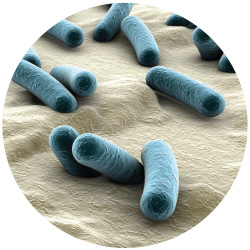
Mycobacterium tuberculosis, the tuberculosis (TB) bacterium, is notorious for evading the body’s immune response. John Chan, M.D., Steven Porcelli, M.D., and Michael Berney, Ph.D., have found evidence that M. tuberculosis evades anti-TB immunity by activating an immunosuppressive pathway controlled by the host enzyme indoleamine 2,3-dioxygenase (IDO).
The National Institutes of Health (NIH) has awarded them a five-year, $4 million grant to study how immunosuppression mediated by IDO activation helps M. tuberculosis circumvent immune defenses. Their research could lead to interventions for better TB control.
Dr. Chan is a professor of medicine and of microbiology & immunology and an attending physician in infectious disease at Montefiore; Dr. Porcelli is a professor and the chair of microbiology & immunology, a professor of medicine and the Murray and Evelyne Weinstock Chair in Microbiology & Immunology; and Dr. Berney is an assistant professor of microbiology & immunology.
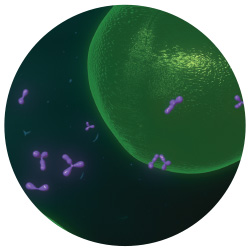
The more than 70 types of autoimmune diseases occur when immune cells aberrantly attack the body’s own cells or tissues. CD8 T cells strongly contribute to the pathology seen in type 1 diabetes and many other autoimmune diseases. The NIH has awarded Teresa DiLorenzo, Ph.D., and Steven C. Almo, Ph.D., a five-year, $3.6 million grant to study the molecular interactions that occur when CD8 T cells target and damage tissue.
CD8 T cells attack disease-causing microbes and tumors too, so knowledge gained from studying them should reveal information about T-cell biology in general.
Dr. DiLorenzo is a professor of microbiology & immunology and of medicine and the Diane Belfer, Cypres & Endelson Families Faculty Scholar in Diabetes Research at Einstein. Dr. Almo is a professor and the chair of biochemistry, a professor of physiology & biophysics and the Wollowick Family Foundation Chair in Multiple Sclerosis and Immunology at Einstein.
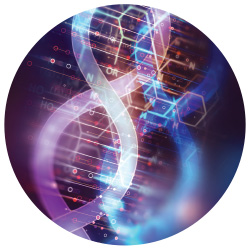
Intrauterine growth restricted (IUGR) newborns weigh less than average but later risk becoming obese or overweight. Studies suggest that IUGR-related obesity may stem from epigenetic alterations during fetal life—in particular, changes in DNA methylation patterns.
The NIH has awarded Maureen J. Charron, Ph.D., and Mamta Fuloria, M.B.B.S., a five-year, $3.5 million grant to study DNA methylation of CD3+ T cells, which contribute to obesity by triggering fat-cell inflammation. The researchers will examine the CD3+ T cells of IUGR babies at birth and at age 2, to see whether changes in DNA methylation patterns persist. The study may identify early biomarkers for predicting obesity later in life.
Dr. Charron is a professor of biochemistry, of obstetrics & gynecology and women’s health and of medicine. Dr. Fuloria is an associate professor of pediatrics and a neonatologist at Children’s Hospital at Montefiore.
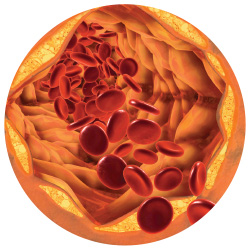
People living with HIV face increased risk for cardiovascular disease (CVD). Evidence suggests that gut microbiota altered during HIV infection may contribute to HIV-related CVD. Qibin Qi, Ph.D., and colleagues received a four-year, $3.3 million NIH grant to study whether gut microbiota trigger HIV-related CVD by disrupting metabolites (intermediate metabolic products) and increasing inflammation and immune activation.
Their research involves 400 men and women, two-thirds of whom are HIV+. Their gut microbiomes and metabolite profiles will be studied and—to assess for CVD—they’ll undergo carotid artery ultrasound imaging and tests for serum and cellular inflammation and immunology markers. Because treatment may be able to influence both gut microbiota and related immune and inflammation activity, the findings may have major public health implications.
Dr. Qi is an associate professor of epidemiology & population health.
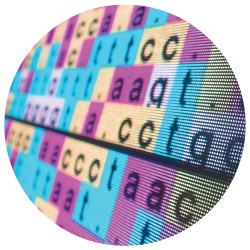
The immune system depends on mutations in genes that code for antibodies to spawn the wide variety of antibodies that protect against pathogens. The enzyme responsible for these mutations, activation-induced deaminase (AID), sometimes mutates other genes as well, leading to B-cell lymphoma and other cancers.
Matthew Scharff, M.D., and Stony Brook University’s Thomas MacCarthy, Ph.D., were awarded a five-year, $2.9 million NIH grant to learn how AID targets specific regions within antibody genes. Understanding how AID induces gene mutations could lead to new vaccine strategies and reveal risk factors for cancers in which AID is implicated.
Dr. Scharff is a distinguished professor of cell biology and of medicine and holds the Harry Eagle Chair in Cancer Research/National Women’s Division. Dr. MacCarthy is an assistant professor of applied mathematics and statistics at Stony Brook University and did his postdoctoral training at Einstein.